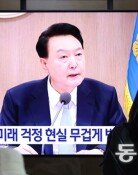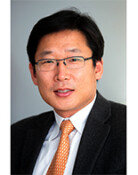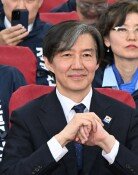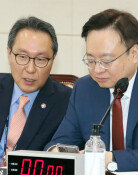AIIB membership, an opportunity to lessen the burden of unification costs
AIIB membership, an opportunity to lessen the burden of unification costs
Posted March. 28, 2015 07:56,
The South Korean government officially announced its participation in the China-backed Asia Infrastructure Investment Bank (AIIB) as a founding member on Thursday. Out of concerns for Chinas growing economic dominance, the U.S. has urged its allies to think twice before joining the China-led bank. But Washingtons major allies including the U.K., Germany, France and Italy have joined the bank and Korea has become the latest U.S. ally to join the bank as a founding member. This is an opportunity for Korea to gain an upper hand to participate in Asian infrastructure projects and widen the window for inter-Korean economic collaboration in projects such as North Koreas infrastructure development. In the future, the South Korean government must exert all-out efforts to secure the maximum share ratio and increase its role in the bank.
The AIIB, which will start operation within this year at the earliest, is a multilateral development bank designed to provide capital in the Asian region where high demand for infrastructure investment exists in areas of construction, transportation, electricity and communication. According to the Asian Development Bank (ADB), the regional demand for investment to infrastructure will exceed 800 billion U.S. dollars a year. With the establishment of the AIIB, infrastructure development projects will be actively pursued not only in individual countries but also across the nations in large scale, such as "One Belt One Road (Silk Road in land and sea)" that Chinese President Xi Jinping conceived. Korean businesses are expected to benefit as Korea is a founding member of the bank.
If approved by the banks general assembly, North Korea can become the banks investment destination. According to the Korea Research Institute for Human Settlements, approximately 100 trillion won (90.4 billion dollars) in investment is required for 10 years to start the 11 major infrastructure projects that are needed in North Korea. As President Park Geun-hye proposed to form a Northeast Asian Development Bank to promote economic development in the North during her visit to Germany, the China-led lending bank may lessen the burden of unification costs if Korea participates in the banks infrastructure development projects.
In addition to the AIIB, China, the second largest economy in the world, plans to operate "New Development Bank" jointly with BRICS states from 2016 as an alternative to the existing U.S.-leading World Bank. As such, an upheaval is taking place in the U.S.-dominant global finance, which has firmly established over the past 70 years since the world wars. Korea must take this as an opportunity to strength its position in the global finance, getting out of the periphery of the worlds financial market, and develop its domestic finance industries.
Despite pressure from the U.S., the South Korean government has decided to join the AIIB based on the economic benefits. When it comes to the issue of THAAD deployment, Korea must make a decision as a sovereign nation. Just as joining the AIIB is not a matter for the U.S. to meddle, THAAD is also not a matter for China to intervene.
Headline News
- Israel prepares for retaliation against Iran
- Samsung reclaims top spot, surpassing Apple in smartphone market
- 77% of Koreans in 20s and 30s are 'Kangaroo Tribe' due to job crisis
- KBO referees embroiled in controversy over ABS decision concealment
- Inflation, oil price surge put double shock on global economy







